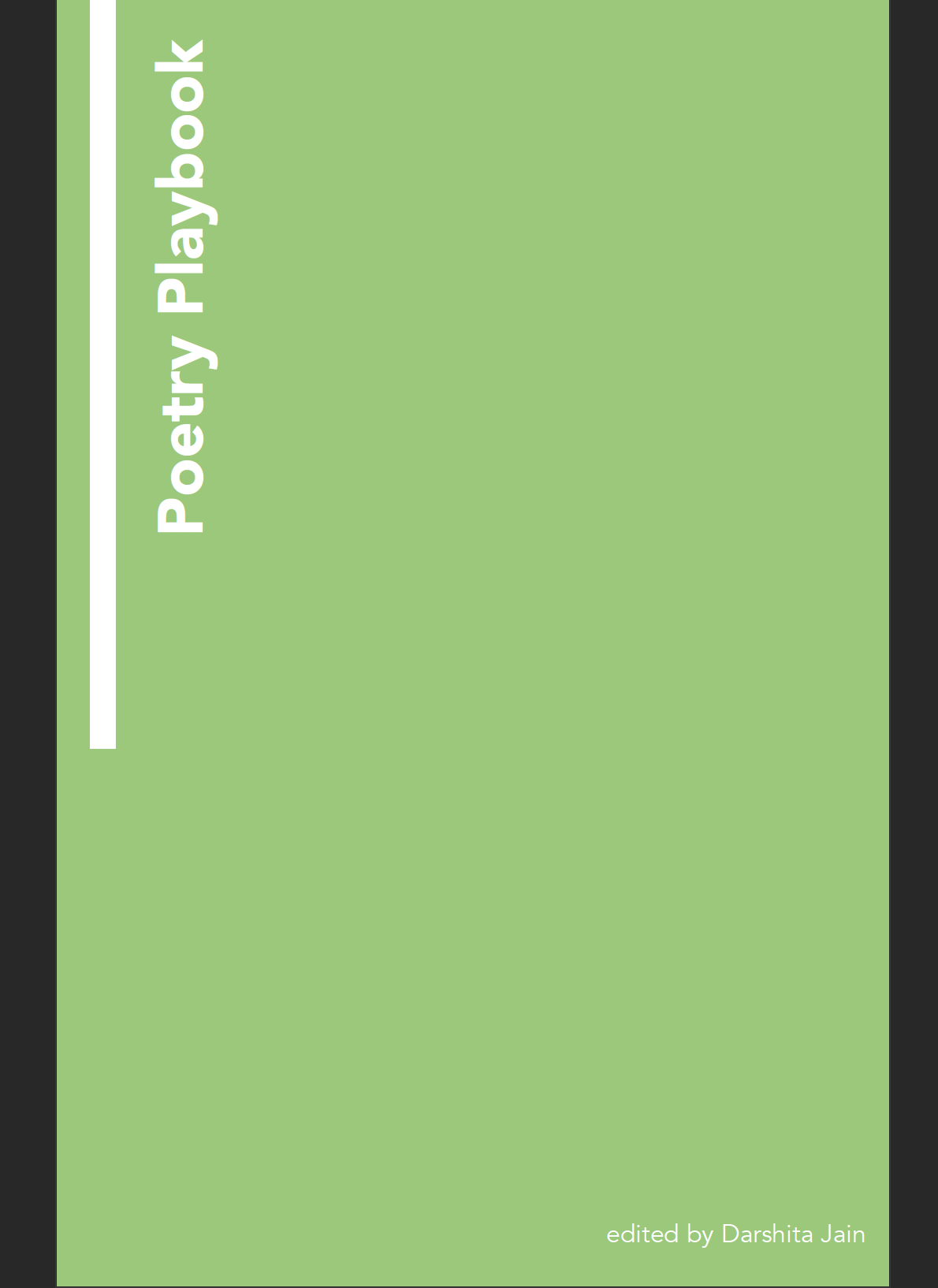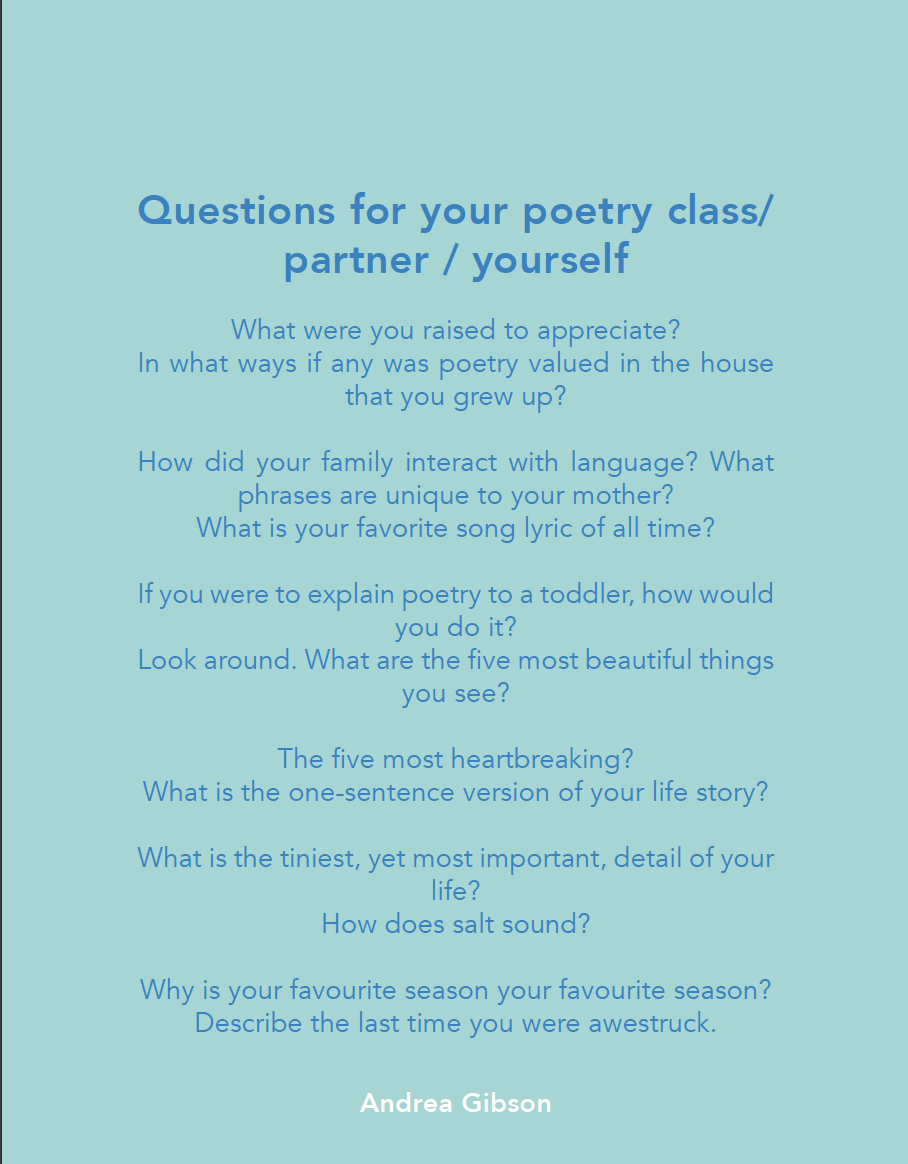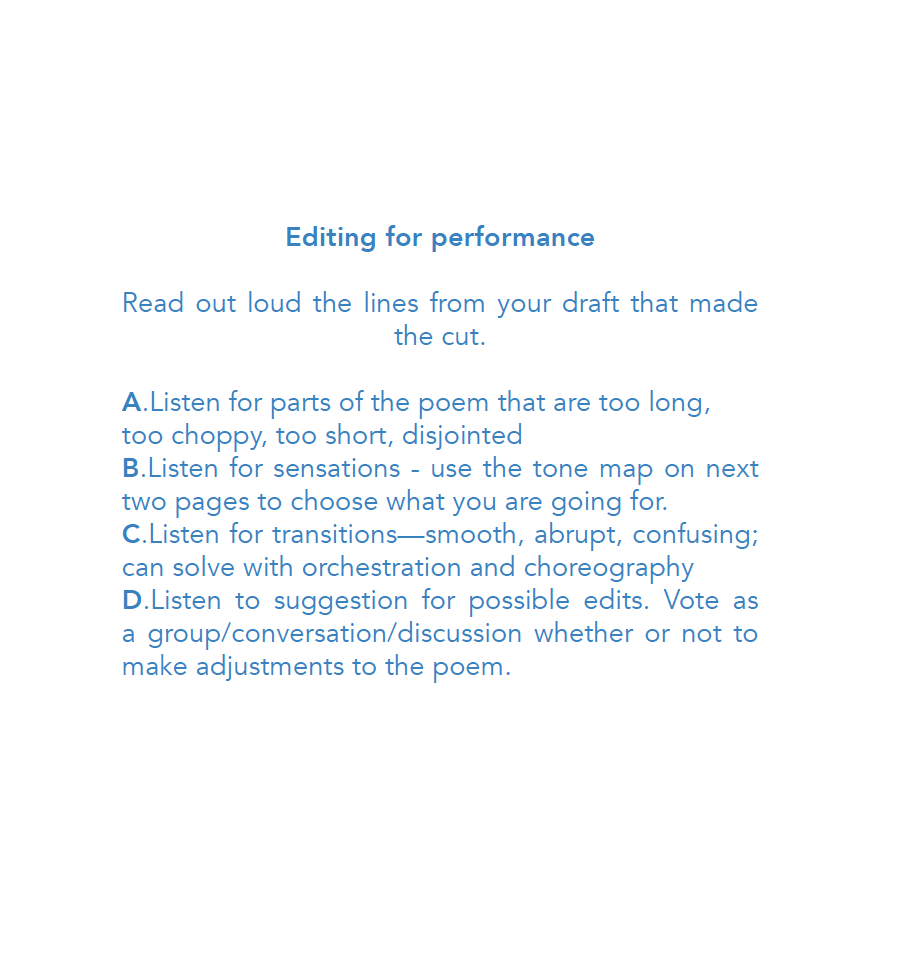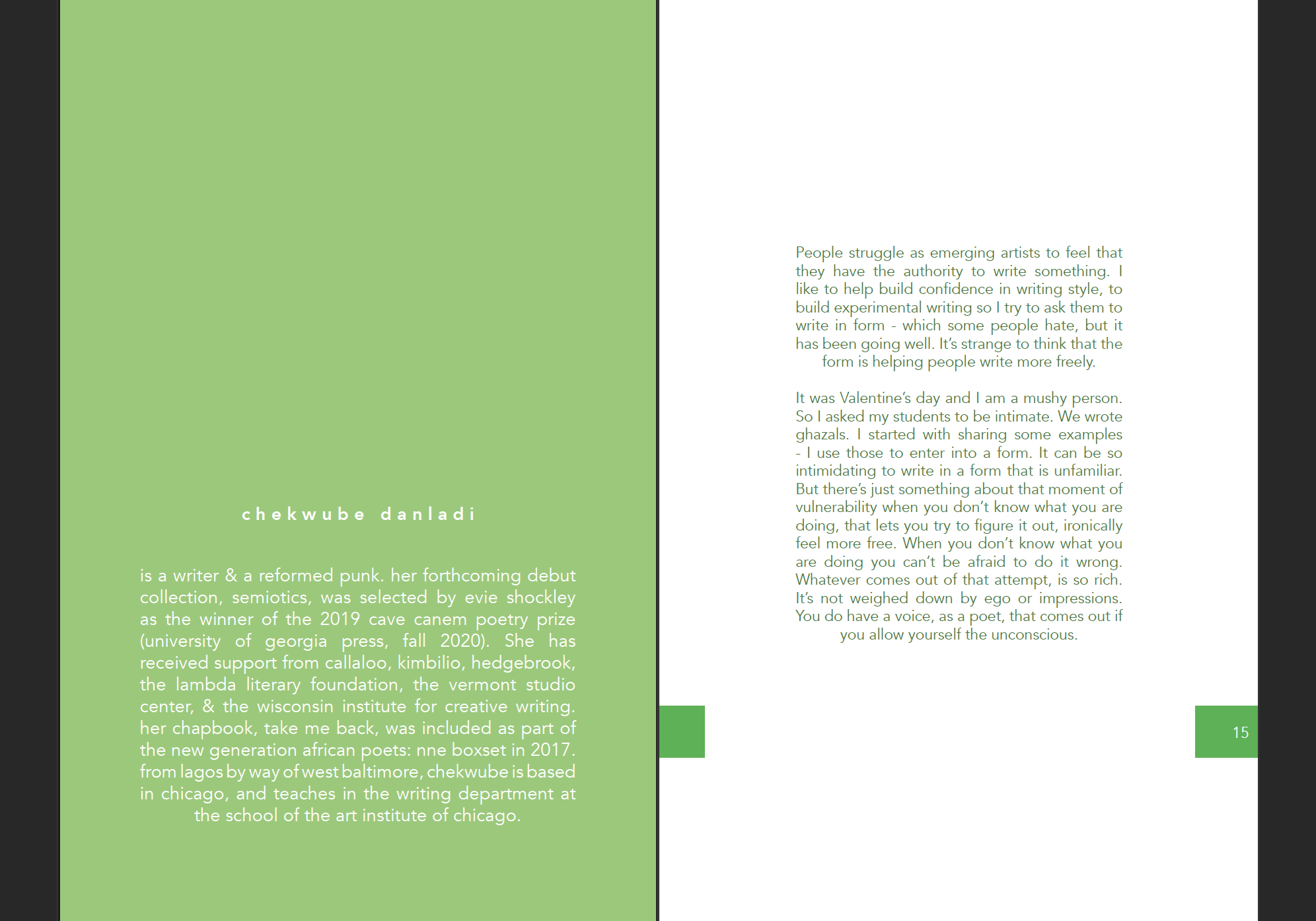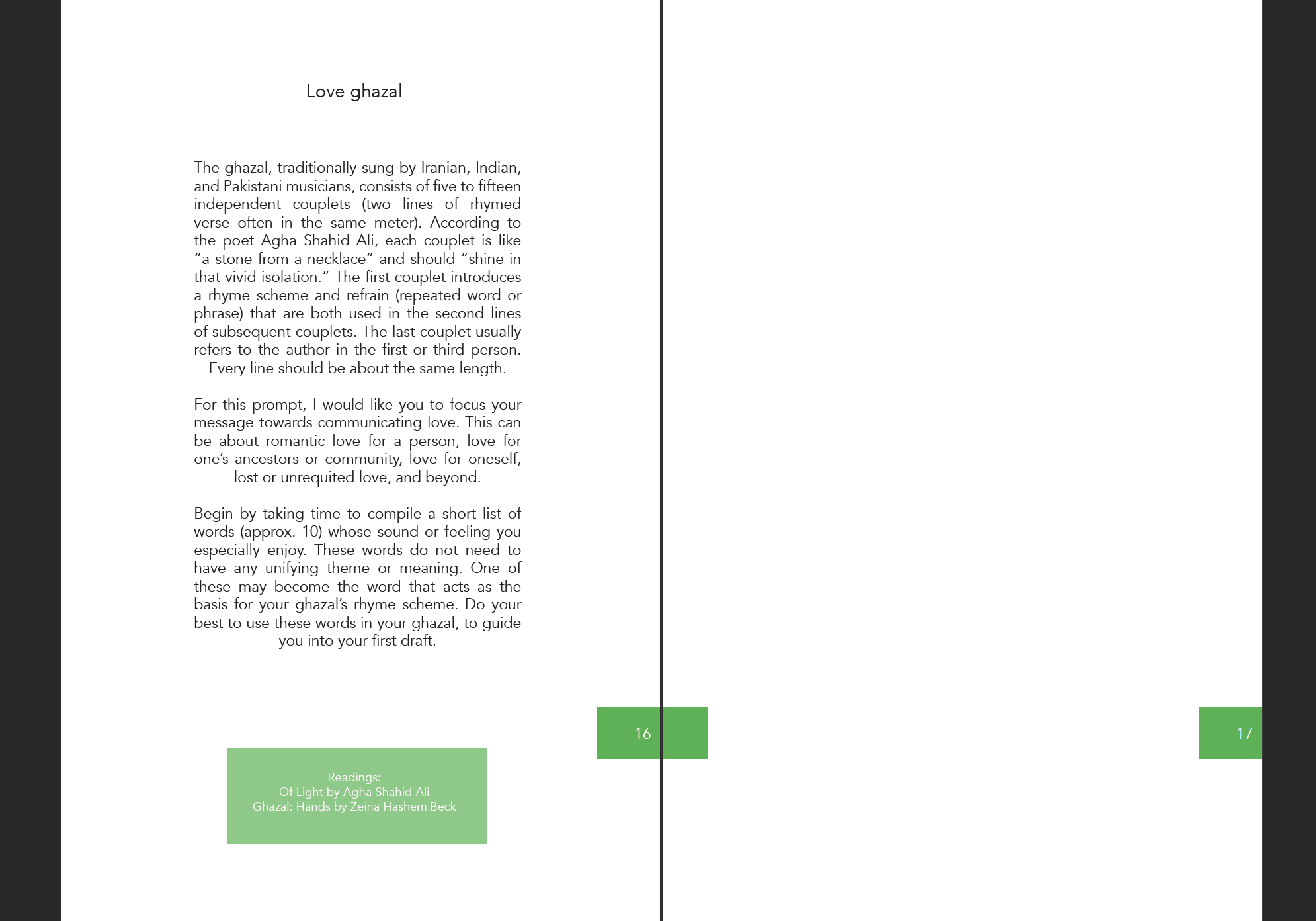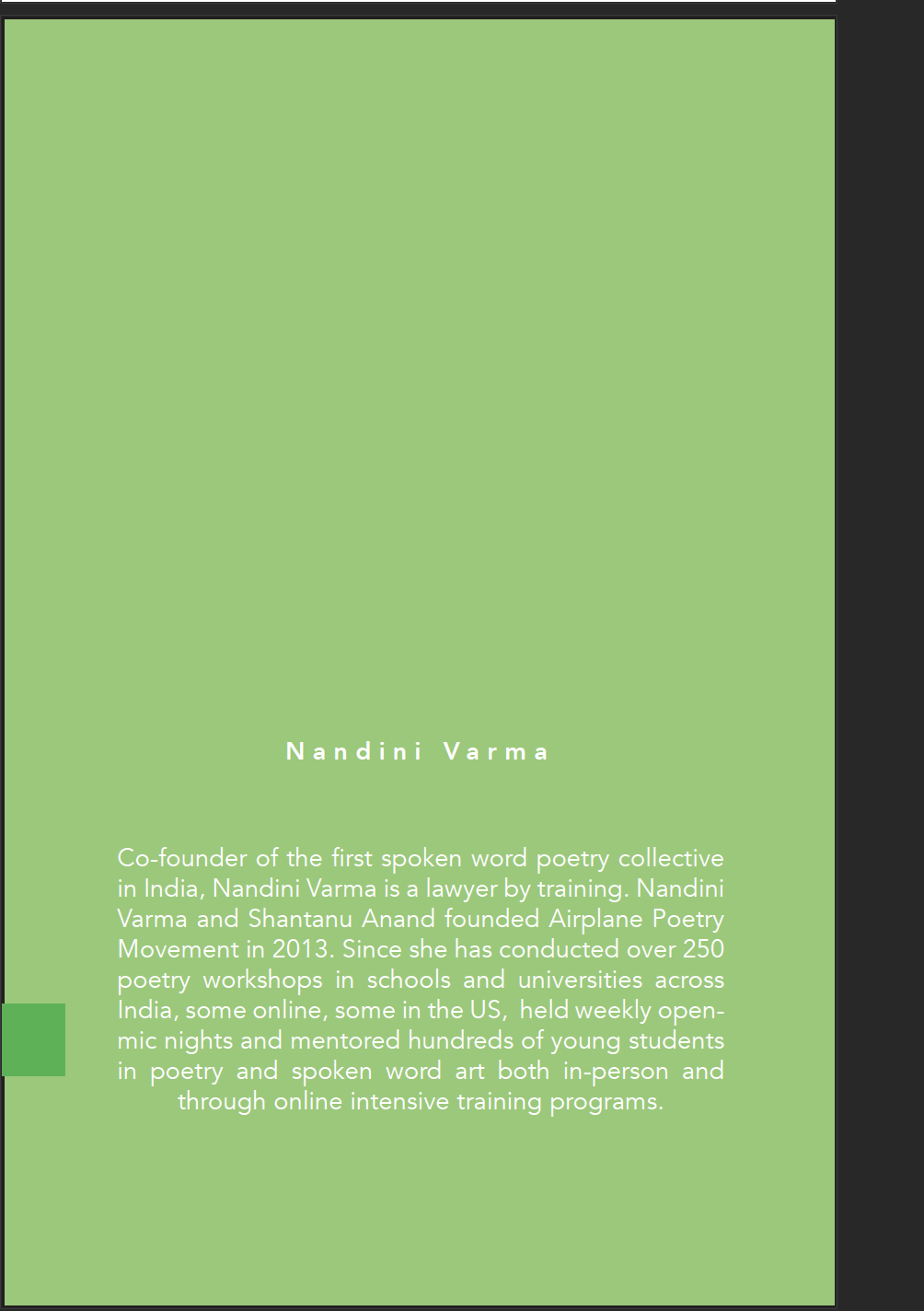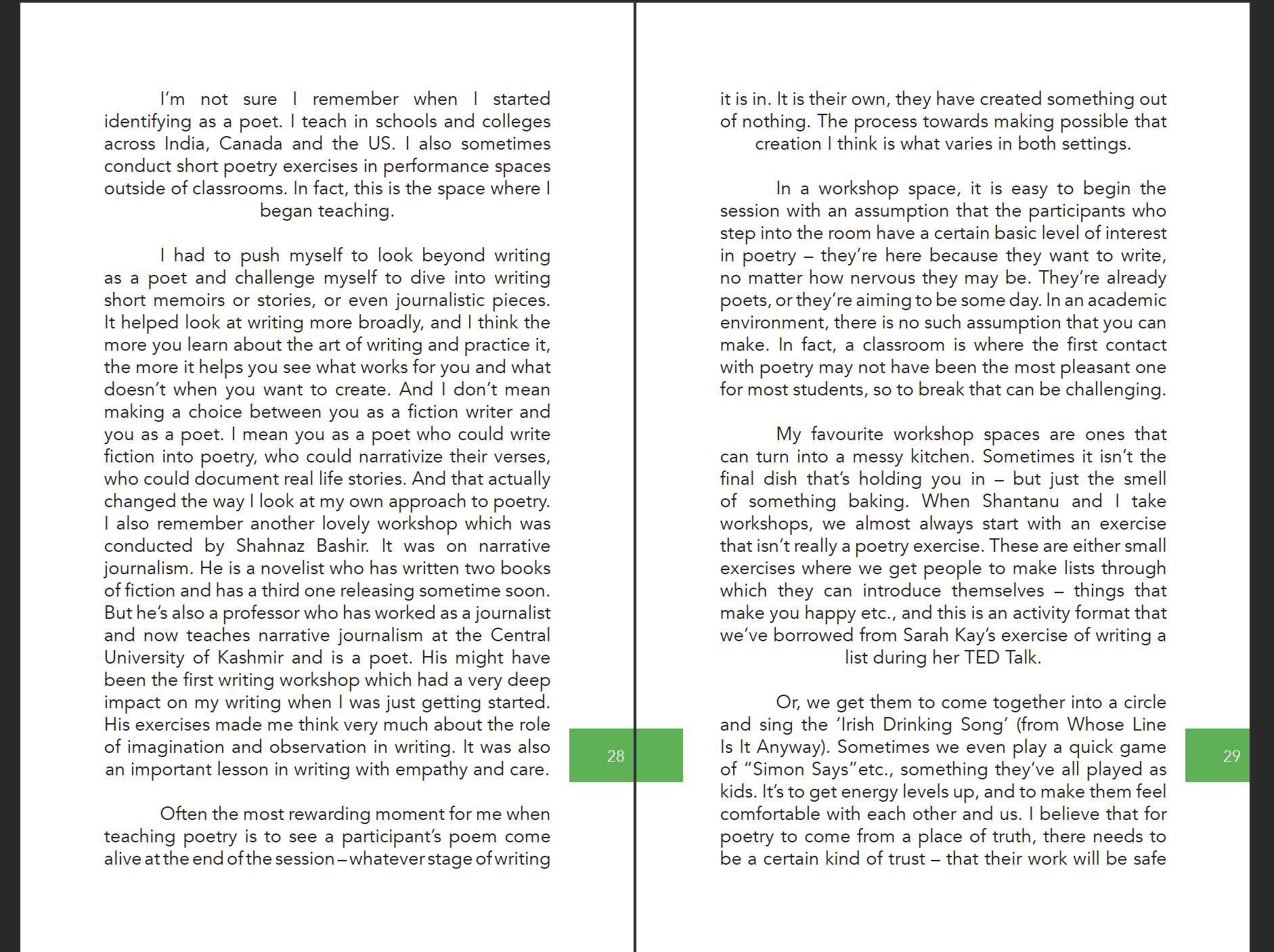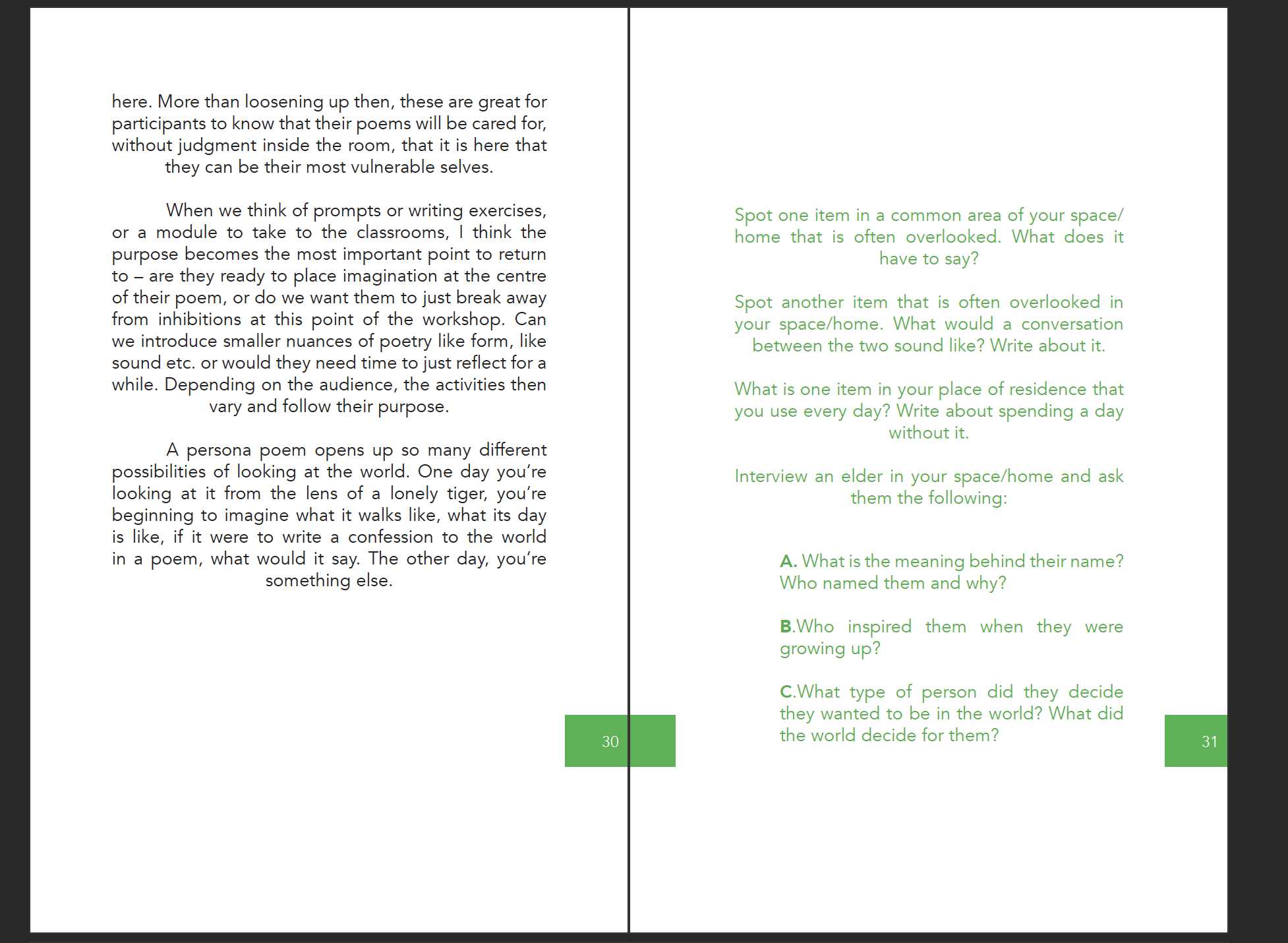Most good writing starts with a question. Sometimes the best questions are the ones you don’t know the answer to. Or have a single answer to. The Poetry Playbook is an instrument that extracts ways to communicate, talk, understand, organize your thoughts. Ten reasons why I regret buying this leather jacket. Three reasons onions rings are not a bad idea. Five reasons to wear yellow out today. Lists are easy. We all write them. So are poems.
The Poetry Playbook documents the ephemeral exercises and safe spaces that happen in a poetry workshop. Exercises in the book are as varied as the people. Every class is different and every assignment too takes different faces and turns. Workshops are meant to be interactive, conversation oriented. Poetry workshops turn into a space to ask questions – to fail and not treat it as anything other than a writing mishap. A backspace. Type again. It rejects the idea of a passive non participative idea of poetry. However young or old, skilled or unskilled – there will be a mic, there will be noise and claps and hoots. There will be a chorus. And a community. Pull from the experts – who don’t call themselves that. Pull from people you think are writing what you want to. Pull from what you see around, dig instead of run.
The book is not meant to be more than a beginning. Just a reminder that poetry is not mystical, but something that can be crafted from scratch, something that can be arrived at. It stands between the burst of emotion, the explosion, and the technique to bring it out in the world. It is about how poetry does not only live isolated in a room with a table but more alive and breathing in a community.
What is in the book is a snapshot of the relationship of poetry to the city of Chicago. Of where it exists and how it flows. Maybe this is that rough notebook, that diary that asks you questions. Maybe it is a book you keep in the back pocket of your backpack to pull out when you need a workshop space, some inspiration. It is meant to be used, multiple times. It is meant to be distributed and given away and tried and tested. What I hope happens is that you realize that poetry is for everybody. Poetry can be funny. it can be political. it can be erotic and full of curse words. Poetry can be a love letter to pudding, or an ode to a tampon – if asked the right questions. This book has some of those questions.
While composing this book, I thought a lot about June Jordan’s line, “This is an important, big book of good news.” Even though not big, the playbook is an attempt to notice magic in the mundane till the mundane turns fascinating. This is an experiment to cross the boundaries of campus and built spaces. It is a literary movement where anyone can join in. Anyone can speak. We build space. Expand. Make allies and friends, poem our way through what is around.
I believe poetry is inherently political in nature. What you pay attention to is as important as how you choose to pay attention to it. If the prompts, poets, exercises in this book spark anything, I am hoping it sparks the need to speak up. To tone up, lay low when need be, think deeper, question more, inside and outside your own body. For me, it all began with the right books, the right questions, the right places – safe spaces. I have tried to bring them to you somehow.
Writing together in a community, talking, asking questions, and getting feedback creates human relationships and intimacies. Poetry is political and intimate and what can be better than a dark thought getting space or an invisible pain being celebrated? Writing with people makes strangers into best friends and friends into family. I should know, most of my community is people I can write with. As I went about talking to not only poets but also students of these workshops, I noticed a rise in self-esteem, a change of tone and demeanor, a new vocabulary that emerged. A strut, a purpose sometimes. Like this validation and grounding in their life and circumstances has made them feel more solid.
More than anything with the playbook, we are building relationships. We are creating diversity and nuance. We are making the nuance more pronounced. More visible. I come from a country obsessed with flattening its nuance. Art is how Chicago taught me to bring it out. Display it in shiny shimmery colors. Speak about what is touching and affecting and impacting real lives. Mine and yours. We can teach each other. There are no hierarchies, only feedback. I think now, not more than ever, before, in future, and now – if we are ever to feel grounded, we need language, and a way to communicate, emphasize, paint and describe.
Chicago is a city of triumphs and failures. Conversations and communities and maybe at the intersection of all of that is where poetry lives – where we all live. It is while living within these intersections that we articulate them, not by turning our backs. Chicago is a city of interactions, dispositions, and definitely one of beliefs. This is the rap city, the poetry city, the mafia city, the lake city, the art city, the school city, the race city, the train city, the tulip city, the you city and the me city. As Hanif Abdurraquib says, this is “a city that never lets you walk alone.” And who are we, if not instruments and voices singing to the people we live with.
I hope this book brings you language. And words. And community. And a little bit of Chicago.
